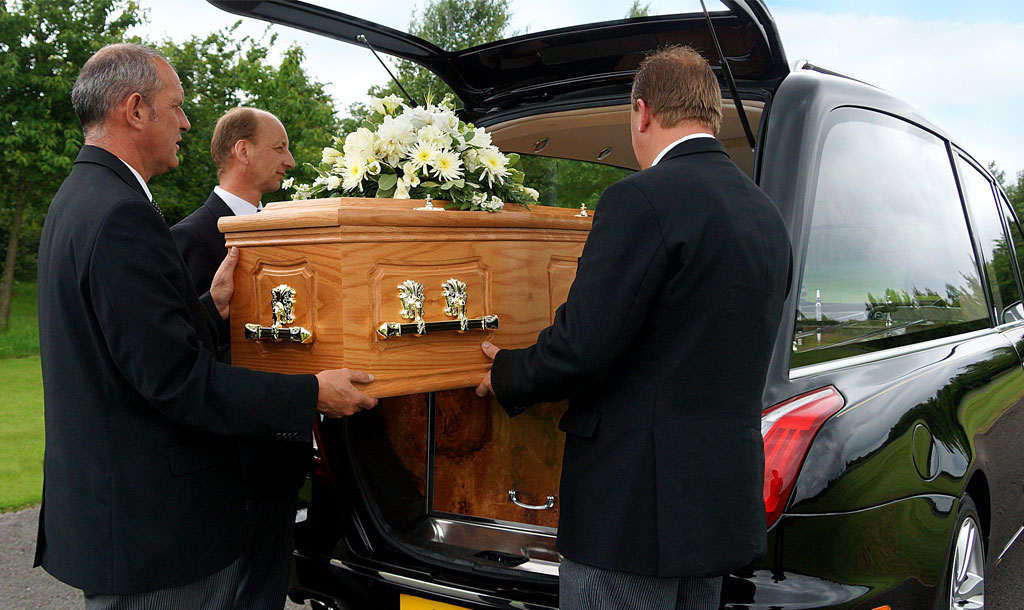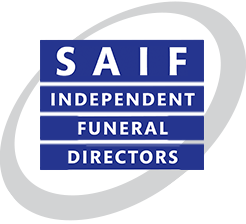What to Do When Someone Dies
Date posted January 2021
It is perfectly understandable to be unsure of the next steps to take when someone has died. It is a stressful and upsetting time when a family member has passed away and this guide offers support and gives you information on what you need to do next.

What to Do if Someone Dies at Home
When someone dies at home, the next steps to take are determined by whether the death was expected or unexpected.
If the death was expected and happened during the daytime, you need to contact the deceased’s GP surgery or call the NHS helpline on 111.
If the death was expected and happened at night you should call the NHS Helpline on 111 for advice on what to do next. You do not need to contact the GP Surgery until the next morning.
Normally in an anticipated death, the cause of death is clear, and the deceased’s Doctor issues a Medical Certificate of Cause of Death. This certificate allows you to register the death.
If the death was unexpected, you need to immediately contact the emergency services on 999. They can provide appropriate advice on what to do next while you wait for a paramedic. You may be directed to attempt resuscitation and the emergency call handler will guide you through this process. A paramedic may attempt to resuscitate or confirm the death. If the cause of death is unknown or not of natural causes, the medical professionals report this to the Coroner. The Coroner may order a post-mortem or inquest to determine the cause of death. Once this is complete, the coroner will issue the required documents which allows you to register the death.
What to Do if Someone Dies in Hospital or a Care Home
When someone dies in hospital or a Care Home and the cause is known, the Doctor there will issue the Medical Certificate of Cause of Death – there is no need to contact the deceased’s GP or the NHS Helpline.
If the cause of death in hospital or a Care Home is unknown, a post-mortem is arranged by the hospital to determine the cause of death and then the Medical Certificate of Cause of Death is issued. This certificate allows you to register the death.
What to Do if Someone Dies Abroad
When someone close to you dies abroad then a distressing situation may feel overwhelming. There is help and support available for you, wherever you are in the world.
If you were travelling with them, then first contact your tour operator who will help you get in touch with the British Embassy and guide you through the next steps. If you are not on an organised tour or package holiday, contact the local police – they will assist you in contacting the relevant organisations and the British Embassy.
If a member of your family has died overseas and you are at home in the UK, you are likely to be contacted by the tour operator, the police or the Foreign and Commonwealth Office. The FCO will offer guidance and updates and can also help you to decide how to proceed with arrangements.
Registering the Death
When you have the Medical Cause of Death Certificate, you need to register the death. Ideally a relative should register the death but if this isn’t possible then it can be registered by someone who was there at the time of death; a hospital administrator or the person in charge of arranging the funeral.
Register the death with the Registrar of Births, Marriages and Deaths for the district where the person died. The Register Office will tell you what paperwork to take when you ring for an appointment. Deaths must be registered within five days. (This time limit doesn’t apply if there is a post-mortem)
Once registered, you’ll be given a Certificate for Burial or Cremation (this is a green form giving permission for burial or cremation) and a Certificate of Registration of Death (BD8)
Insurance, Pets and Practicalities
Many people find that dealing with the practicalities after a relative dies gives them a sense of purpose while they process their loss and grieve. You may feel that there is too much for you to cope with but remember that other family members and close friends are there for you and able to help. If you have no one to help you or don’t feel able to ask, there are bereavement charities and organisations who are there to support you.
If the deceased lived alone in their own property, then you need to make sure their home is insured. If their house insurance is in their name then the cover will cease, so contact the insurers as soon as possible. Remember to cancel any scheduled deliveries – milk or newspapers – and if the deceased had any pets, arrange for them to be cared for. The RSPCA or local animal charities are a great source of advice, and you will probably find that someone in your family would enjoy taking on a much-loved pet.
You will need to tell friends and wider family about the death. Consider an announcement in the local paper once you’ve told family members and close friends.
Contact a Funeral Director and arrange the funeral. Check the will or any instructions left by the deceased and incorporate their wishes into the ceremony.
Contact the deceased Utilities provider, and their bank, mortgage provider or landlord and any organisations or clubs. You will need the Death Certificate and a proof of ID, for example a Driving Licence for the majority of these.
You also need to tell the local Council and Government Departments. There is a service called ‘Tell Us Once’ that is available in most areas of the UK. This means you can just make one call and the Government departments are notified. This service can save you lots of time on the phone as you don’t need to call DVLA, the Department of Work and Pensions and the Tax Office separately, they are all notified via ‘Tell Us Once’.
Our team of local funeral directors are always on hand to help advise and support you. For more information simply call or email us.


